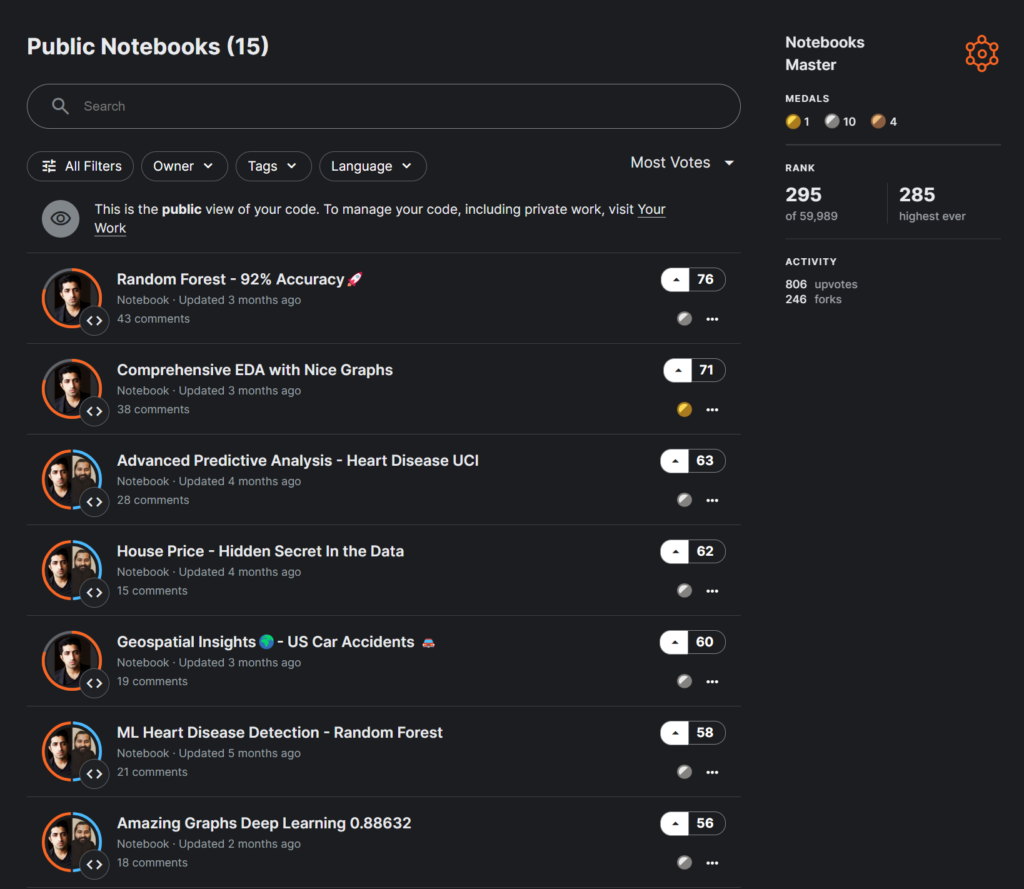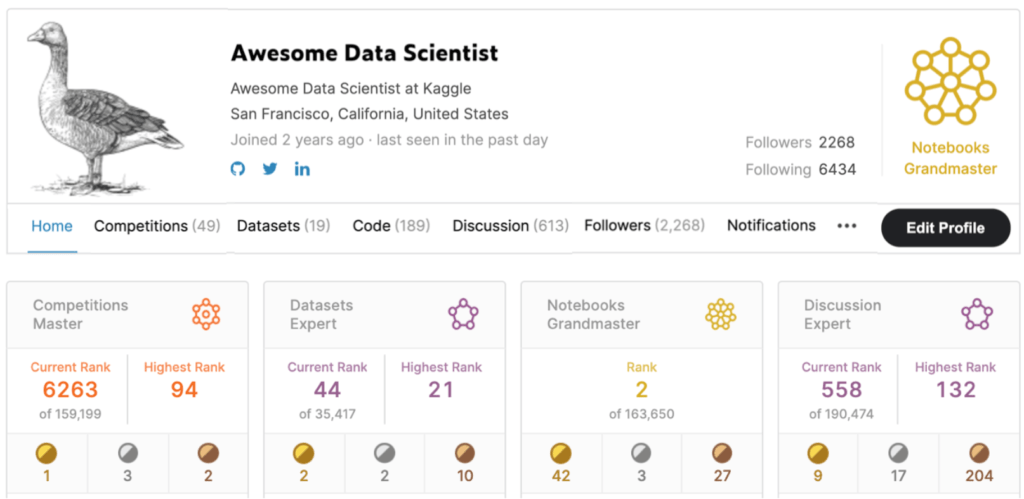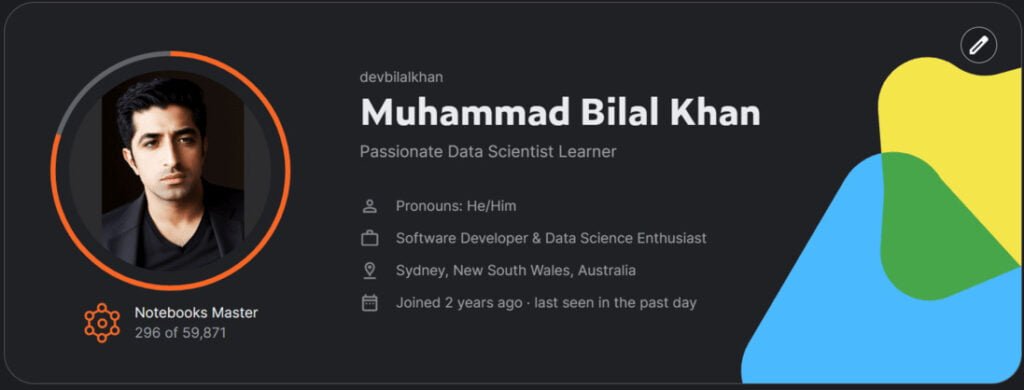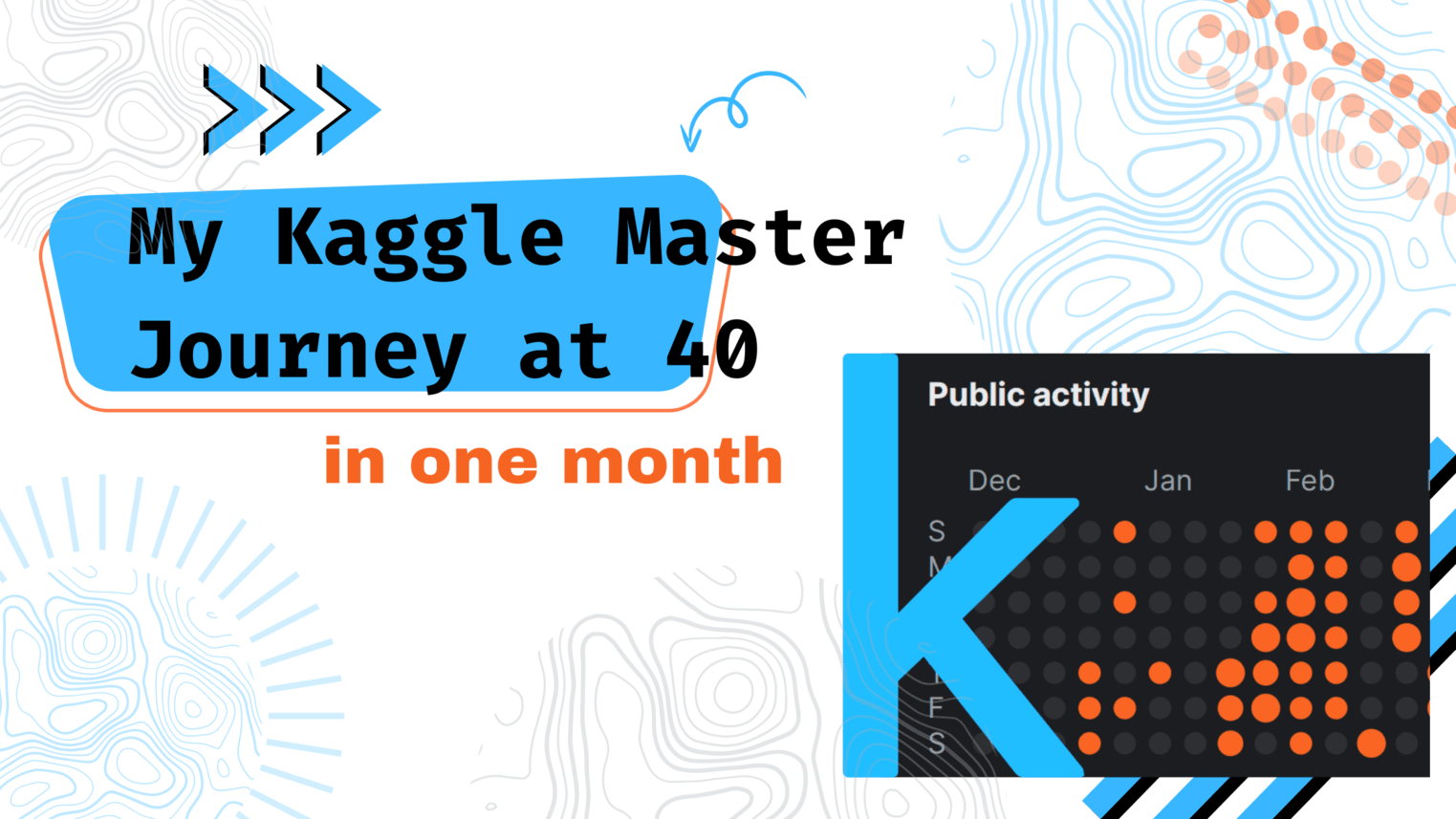Forty years young and hungry to take on a new challenge – that’s the mindset that propelled me from data science novice to earning the distinguished Kaggle master rank in a mere 30 days. And let me tell you, this achievement was no easy feat!
For those unfamiliar, Kaggle is a pioneering online platform that hosts data science competitions and provides a community for collaboration. Data enthusiasts from around the world can access real-world datasets, build and share machine learning models, and have their work evaluated through competitions. It’s an incredible resource for hands-on learning and showcasing one’s skills.
For years, the name “Kaggle” intimidated me. I had joined the platform three years ago on a whim, lured by the prospect of learning data science through practical competitions. However, my first glimpse of the Titanic machine learning competition made me question if I was in over my head. The data, the analysis, the coding – it all seemed like a huge mountain. Defeated, I abandoned Kaggle, convincing myself it wasn’t for newbies like me.
How my Kaggle journey started
That all changed six months ago when I enrolled in Dr. Muhammad Aammar Tufail’s intensive Data Science AI Mentorship program. From day one, Dr. Tufail emphasized the importance of getting our hands dirty on Kaggle as a way to accelerate our learning. His reasoning was simple – the best way to solidify concepts is by applying them to real-world datasets and problems.
Although apprehensive at first, I knew I had to take the plunge into the Kaggle waters again. This time, however, I would be diving in with the structure of Dr.Tufail’s course as my rescue boat.
The Steep Learning Curve before becoming Kaggle master
My re-initiation into the world of data science and machine learning felt like drinking from a firehose. Statistics, linear algebra, programming, modelling techniques – I had to master all these disciplines from scratch at a lightning pace. While I had some rusty programming knowledge from my college days, everything else was brand new.
Dr. Tufail’s course provided clarity amidst the chaos. Through his lectures, assignments and coding exercises, I steadily chipped away at filling the knowledge gaps. Piece by piece, the foreign concepts started making sense and clicking into place.

First Successes on Kaggle
Despite feeling like a fish out of water initially, Dr. Tufail continued pushing me and my classmates to put our skills to the test on Kaggle competitions. My first kernel (Kaggle code submission) was for the “Heart Disease Detection” challenge where I built a random forest model to predict heart disease risk.
To my surprise and utter delight, my approach worked remarkably well! In fact, Dr. Tufail’s was so impressed that he showcased my kernel in one of the course lectures as an example for other students. This morale boost was exactly what I needed to kick my Kaggle efforts into high gear.
Over the next few weeks, I became a Kaggle streaker, participating in back-to-back competitions across diverse domains like brain imaging classification, Binary Classification with a Bank Churn, Image classification etc , and . While some of these areas were outside my core expertise, I relished the opportunity to apply my newly-minted skills on unique, real-world datasets.
A few of my notebooks from my journey to becoming a Kaggle master

Benefits of Jumping into Competitions as a Novice
Looking back, diving headfirst into Kaggle competitions as a relative novice was one of the best decisions I made. With each kernel I submitted, I gained experience in the entire data science life cycle – from processing and cleaning data, to designing feature sets, selecting optimal models, fine-tuning hyperparameters, pipelines, and more.
Moreover, being an active part of the Kaggle community opened my eyes to a world of knowledge sharing and collaboration. I avidly followed the discussion forums, learning from the approaches and ideas of seasoned Kaggle experts. Their insights helped me understand not just the “what’s” but also the “why’s” behind different techniques.
Consistency and Community Engagement
They say the formula for getting to success is simple – practice, practice, practice. The same ethos applied to my journey of becoming a Kaggle master. I made it a habit to spend at least an hour daily on the platform – whether it was studying kernels, participating in discussions, or tinkering with my own code on datasets.
The Kaggle forums became my virtual classroom and community centre. I posted visualizations, analyses and insights, engaging with others while receiving invaluable feedback. The experience was akin to being surrounded by a global brain trust of data scientists from whom I could learn and grow exponentially.
Kaggle’s progression system & rank
One of the most alluring aspects of Kaggle is its skills progression system that incentivizes consistent participation through different ranks and medals. Upon joining, I was at the very bottom – a “Novice” with no accolades to my name.
As I started submitting kernels and scoring well on competitions, I steadily climbed the ranks from “Novice” to “Expert”, earning Bronze and Silver medals along the way. With each milestone, my confidence received a massive boost, reaffirming that my hard work was paying off.
However, the pinnacle is achieving the coveted “Master” rank, which requires consistently outstanding performances. This became my singular focus and driving force over the past month.

Strategies for Rapid Ranking Up to Kaggle master
So how did I manage to elevate from the Novice rungs all the way to becoming a Master in just one month? Firstly, consistent coding practice and actively participating in discussion forums were paramount. I learned as much from dissecting high-scoring kernels as I did from my own trial-and-error.
Secondly, I made a conscious effort to diversify my skills by practicing across as many different datasets and techniques as possible. This well-rounded experience helped me gain a strategic mindset for quickly understanding data challenges and deploying the optimal solutions.
Finally, being extremely dedicated was crucial. There were many late nights spent analyzing datasets and writing code. However, I understood that every hour spent practicing was helping me improve my skills faster.
Conclusion
As I look back at the (past me) who signed up for Kaggle three years ago, I can’t help but feel a sense of pride and accomplishment. From being intimidated by the very thought of data science to decisively becoming a Kaggle Master, I completed an amazing one-month transformation.
However, this isn’t the finish line – it’s just the beginning of my journey as an eternal student. The global community of seasoned Grandmasters on Kaggle are my next source of inspiration and learning. I aim to join their ranks in the coming months by continuing my consistent practice, engagement and an insatiable appetite for new learnings.
I am grateful to all my friends who supported me this journey and special thanks to Dr. Tufail for giving me this opportunity. And thanks to you too for reading this article. Now the next stop is Kaggle Grandmaster.


About the Author
Muhammad Bilal Khan (he/him) is an Aspiring Data Scientist and passionate learner actively participating in Kaggle competitions. With a background in computer science, Bilal returned to the field after a long hiatus and has since achieved the status of Kaggle Master. He is particularly interested in machine learning and deep learning. Connect with Bilal on Kaggle, or follow him on Twitter @devbilalkhan, or Github. Feel free to reach out via email at bilal.khan@live.com

This is Inspiration for all new comers in the field of Data Science and Kaggle Platform.
GREAT POST!
very difficult english and very bad story telling
inspiring story and well written.